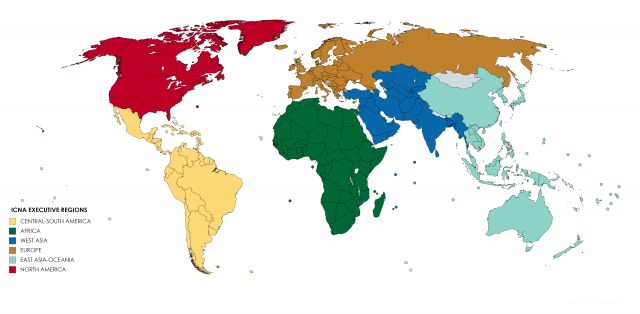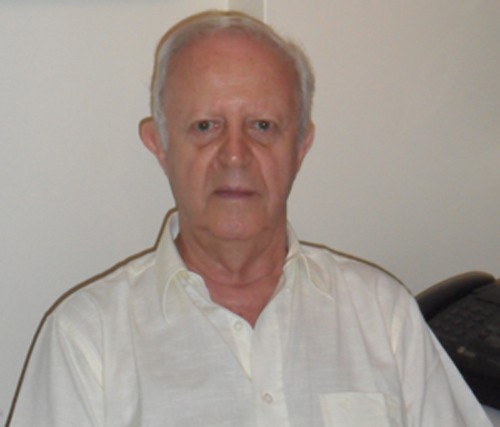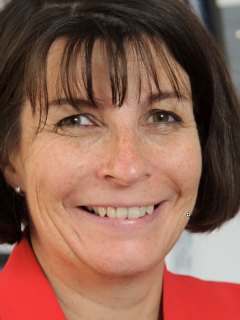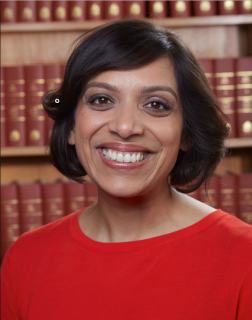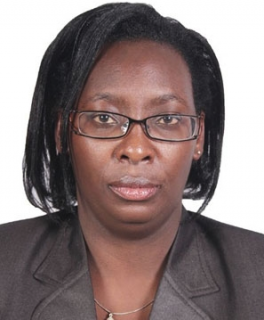
In a new study published in The New England Journal of Medicine the researchers, comparing two doses of Cannabidiol (CBD) to a placebo, reported a 41.9 percent reduction in "drop seizures" in patients taking a 20 mg/kg/d Cannabidiol (CBD) regimen, a 37.2 percent reduction in those on a 10 mg/kg/d Cannabidiol (CBD) regimen, and a 17.2 percent reduction in a group given a placebo.
The phase III trial was led by principal investigator and study first co-author Orrin Devinsky, MD, a professor of neurology, neurosurgery, and psychiatry at NYU School of Medicine and director of NYU Langone's Comprehensive Epilepsy Center.
The study included an investigational liquid, oral formulation of CBD called Epidiolex. The product is manufactured by GW Pharmaceuticals, which operates in the U.S. as Greenwich Biosciences; GW Pharmaceuticals funded the clinical trial.
The investigators enrolled 225 patients (age 2 to 55) with Lennox-Gastaut syndrome across 30 international sites in a randomized, double-blind, placebo-controlled trial to assess the efficacy and safety of two doses of CBD: Seventy-six patients received 20 mg/kg/d CBD, 73 received 10 mg/kg/d CBD, and 76 were given a placebo. All medications were divided into two doses per day for 14 weeks. The number of seizures were monitored beginning four weeks prior to the study for baseline assessment, then tracked throughout the 14-week study period and afterwards for a four-week safety check.
Side effects occurred in 94 per of patients in the 20 mg CBD group, 84 percent in the 10 mg CBD group, and 72 percent of those taking placebo. Side effects were generally reported as mild or moderate in severity and those that occurred in more than 10 percent of patients included: sleepiness, decreased appetite, diarrhea, upper respiratory infection, fever, vomiting, nasopharyngitis, and status epilepticus. Fourteen patients taking CBD experienced dose-related, elevated liver enzymes that were reversible. Seven participants from the CBD group withdrew from the trial due to side effects compared to one participant in the placebo group.
A previous study led by Dr. Devinsky published in last May's New England Journal of Medicine had shown a 39 percent drop in seizure frequency in patients with Dravet syndrome. Those findings represented the first large-scale, randomized clinical trial for the compound. Open label CBD studies led by Dr. Devinsky also have shown positive results for treatment-resistant epilepsies.
In April, a U.S. Food and Drug Administration advisory panel unanimously voted to recommend approval of a new drug application for Epidiolex cannabidiol oral solution. The FDA will decide whether to approve the medication in late June.
However Dr Devinsky points out that more research remains imperative to better determine the effects of CBD and other similar cannabis-derived compounds on other forms of the disease and in more dosing regimens.
Citation: Devinsky O, Patel AD, Cross JH, Villanueva V, Wirrell EC, Privitera M et al. (2018) Effect of Cannabidiol on Drop Seizures in the Lennox-Gastaut Syndrome. N Engl J Med 378 (20):1888-1897. DOI: 10.1056/NEJMoa1714631 PMID: 29768152.
Dr. Devinsky received research funding from GW Pharmaceuticals, but no salary support outside of a one-time consulting fee for participating in the FDA advisory panel. He holds equity interests in Pairnomix, Receptor Life Sciences Rx, Tilray, Rettco and Tevard.
Source: NYU Langone Health / NYU School of Medicine Press Release
Read More
- Details
- ICNA
- News
- Hits: 1142
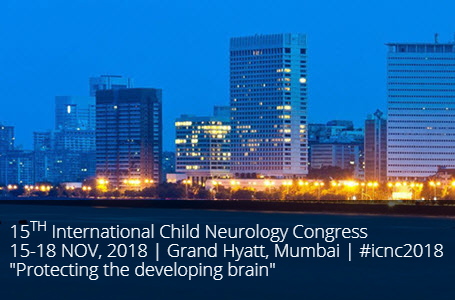
The congress offers a comprehensive discipline by way of the various types of sessions and diverse range of topics. The education and scientific program of the congress will highlight state-of-the-art clinical practice, recent advances, uptodate research and workshops on key topics for the practising neurologist.
Thursday 15th Nov
| Time | Ball Room 1 | Ball Room 2 | Ball Room 3 | Ball Room 4 |
| 08.00 - 08.15 | OPENING CEREMONY | |||
| 08.15 - 08.30 | ||||
| 08.30 - 08.45 | Plenary 1 : Jacob John Non Infective Acute Encephalopathy |
|||
| 08.45 - 09.00 | ||||
| 09.00 - 09.15 | ||||
| 09.15 - 09.30 | Plenary 2 : David Zee Abnormal eye movements in kids |
|||
| 09.30 - 09.45 | ||||
| 09.45 - 10.00 | ||||
| 10.00 - 10.15 | Tea Break | |||
| 10.15 - 10.30 | ||||
| 10.30 - 10.45 | Parallel Session: Infection encephalitis in Asia |
Parallel Session: Recognition of Neurometabolic Organellar Disorders & Advances in Treatment |
Parallel Session: SUDEP: Sudden Unexpected Death in Children with Epilepsy |
Parallel Session: Affective and Cognitive Aspects of Childhood Movement Disorders |
| 10.45 - 11.00 | ||||
| 11.00 - 11.15 | ||||
| 11.15 - 11.30 | ||||
| 11.30 - 12.00 | ||||
| 12.00 - 12.30 | ||||
| 12.30 - 13.00 | Poster Session with LUNCH | |||
| 13.00 - 13.30 | ||||
| 13.30 - 13.45 | Lunch | |||
| 13.45 - 14.00 | ||||
| 14.00 - 14.15 | Platforms | Platforms | Platforms | Platforms |
| 14.15 - 14.30 | ||||
| 14.30 - 14.45 | ||||
| 14.45 - 15.00 | ||||
| 15.00 - 15.15 | ||||
| 15.15 - 15.30 | ||||
| 15.30 - 16.00 | ||||
| 16.00 - 16.30 | Tea Symposium 1-A Spasticity treatment in cerebral palsy: improving function in children in low/middle income countries & high income countries |
Tea Symposium 1-B Concussion: A Disaster of gigantic proportions, Where is the balance? A pediatric neurology perspective. |
Tea Symposium1- C Chemicals in the environment are a major threat to the healthy brain development of children in South Asia |
Tea Symposium 1-D Pediatric Ischemic Stroke: Insights from New (and the old!) Imaging Techniques |
| 16.30 - 17.00 | ||||
| 17.00 - 17.30 | ||||
| 17.30 - 18.00 | Tea | |||
| 18.00 - 18.30 | INAUGURATION CEREMONY | |||
| 18:30 - 18:45 | ||||
| 18.45 - 19.00 | ||||
| 19.00 - 19.30 | COCKTAILS | |||
| 19.30 - 20.00 | ||||
| 20.00 - 20.30 | ||||
Friday 16th Nov
| Time | Ball Room 1 | Ball Room 2 | Ball Room 3 | Ball Room 4 |
|---|---|---|---|---|
| 07.00 - 07.30 | Breakfast Yoga Session 1 : Mimics of cerebral palsy | Breakfast Yoga Session 2 :Lost in Transition: An International Perspective and Solutions for Adolescents with Epilepsy | ||
| 07.30 - 07.45 | ||||
| 07.45 - 08.00 | ||||
| 08.00 - 08.15 | Break | |||
| 08.15 - 08.30 | ||||
| 08.30 - 08.45 | Fukuyama Tribute Lecture : Carsten Bonnemann |
|||
| 08.45 - 09.00 | ||||
| 09.00 - 09.15 | ||||
| 09.15 - 09.30 | Sheila Wallace Award Lecture : Pauline Samia |
|||
| 09.30 - 09.45 | ||||
| 09.45 - 10.00 | ||||
| 10.00 - 10.15 | Tea Break | |||
| 10.15 - 10.30 | ||||
| 10.30 - 10.45 | Parallel Session: CNS TB - Current Challenges |
Parallel Session: Precision Medicine for Epilepsy |
Parallel Session: Autoimmune inflammatory neuropathies in childhood |
Parallel Session: Stroke in Childhood |
| 10.45 - 11.00 | ||||
| 11.00 - 11.15 | ||||
| 11.15 - 11.30 | ||||
| 11.30 - 12.00 | ||||
| 12.00 - 12.30 | ||||
| 12.30 - 13.00 | POSTER SESSION WITH LUNCH | |||
| 13.00 - 13.30 | AGM | |||
| 13.30 - 13.45 | LUNCH | |||
| 13.45 - 14.00 | ||||
| 14.00 - 14.15 | PLATFORMS | PLATFORMS | PLATFORMS | PLATFORMS |
| 14.15 - 14.30 | ||||
| 14.30 - 14.45 | ||||
| 14.45 - 15.00 | ||||
| 15.00 - 15.15 | ||||
| 15.15 - 15.30 | ||||
| 15.30 - 16.00 | ||||
| 16.00 - 16.30 | Tea Symposium 2-A Update on Paediatric MS and demyelinating disease (on behalf of the IPMSSG) |
Tea Symposium 2-B Epileptic Encephalopathies – Infantile spasms, latest trials ACTH + vigabatrin |
Tea Symposium 2-C TBD |
Tea Symposium 2-D TBD |
| 16.30 - 17.00 | ||||
| 17.00 - 17.30 | ||||
| 17.30 - 18.00 | TEA BREAK | |||
| 18.00 - 18.30 | Master Class 1: Movement Disorder |
Master Class 2 : White Matter Disorder |
Master Class 3 : Neuro Muscular Disorder |
NEW ICNA BM |
| 18:30 - 18:45 | ||||
| 18.45 - 19.00 | ||||
| 19.00 - 19.30 | ||||
| 19.30 - 20.00 | ||||
| 20.00 - 20.30 | Dinner for Masterclass and ICNA BM | |||
| 21.00 - 22.00 | ||||
Saturday 17th Nov
| Time | Ball Room 1 | Ball Room 2 | Ball Room 3 | Ball Room 4 |
|---|---|---|---|---|
| 07.00 - 07.30 | Breakfast Yoga Session 3 : Videos are worth more than 1000 words: A clinical/research update in sleep neurology using illustrative cases in a Video-Quiz format |
Breakfast Yoga Session 4 : Acquired and Genetic defects of Thiamine transport and metabolism |
||
| 07.30 - 07.45 | ||||
| 07.45 - 08.00 | ||||
| 08.00 - 08.15 | Break | |||
| 08.15 - 08.30 | ||||
| 08.30 - 08.45 | Segawa Tribute Lecture : Jean Pierre Lin |
|||
| 08.45 - 09.00 | ||||
| 09.00 - 09.15 | ||||
| 09.15 - 09.30 | Frank Ford Award Lecture: Helen Cross |
|||
| 09.30 - 09.45 | ||||
| 09.45 - 10.00 | ||||
| 10.00 - 10.15 | Tea Break | |||
| 10.15 - 10.30 | ||||
| 10.30 - 10.45 | Parallel Session: Update on treatable immune-mediated CNS disorders: Diagnoses you don't want to miss |
Parallel Session: Potentially treatable neurometabolic diseases in children |
Parallel Session: Targeted therapies in Tuberous Sclerosis Complex |
Parallel Session: Current advances in neuroprotection and neuroplasticity |
| 10.45 - 11.00 | ||||
| 11.00 - 11.15 | ||||
| 11.15 - 11.30 | ||||
| 11.30 - 12.00 | ||||
| 12.00 - 12.30 | ||||
| 12.30 - 13.00 | POSTER SESSION WITH LUNCH LUNCH | |||
| 13.00 - 13.30 | ||||
| 13.30 - 13.45 | ||||
| 13.45 - 14.00 | ||||
| 14.00 - 14.15 | PLATFORMS | PLATFORMS | PLATFORMS | PLATFORMS |
| 14.15 - 14.30 | ||||
| 14.30 - 14.45 | ||||
| 14.45 - 15.00 | ||||
| 15.00 - 15.15 | ||||
| 15.15 - 15.30 | ||||
| 15.30 - 16.00 | ||||
| 16.00 - 16.30 | Tea Symposium 3-A Advances in Neuromodulation: the Brain and Beyond |
Tea Symposium 3-B Drug refractory epilepsy and epilepsy surgery. A pediatric perspective |
Tea Symposium 3-C Neurodegeneration with Brain Iron Accumulation: Scientific advances during the last decade |
Tea Symposium 3-D Neonatal Neurocritical Care in 2018 |
| 16.30 - 17.00 | ||||
| 17.00 - 17.30 | ||||
| 17.30 - 18.00 | TEA BREAK | |||
| 18.00 - 18.30 | Focussed Symposia 1 :Research Methodology | Focussed Symposia 2 :Technology in Neurology | Focussed Symposia 3 :Global Burden of Diseases | Focussed Symposia 4 : TBC |
| 18:30 - 18:45 | ||||
| 18.45 - 19.00 | ||||
| 19.00 - 19.30 | ||||
| 19.30 - 20.00 | Banquet | |||
| 20.00 - 20.30 | ||||
| 21.00 - 22.00 | ||||
Sunday 18th Nov
| Time | Ball Room 1 | Ball Room 2 | Ball Room 3 | Ball Room 4 |
| 07.45 - 08.00 | Plenary 3 : Adre Du Plessis Fetal Neurology |
|||
| 08.00 - 08.15 | ||||
| 08.15 - 08.30 | ||||
| 08.30 - 08.45 | John Stobo Prichard Award : Manju Kurian |
|||
| 08.45 - 09.00 | ||||
| 09.00 - 09.15 | ||||
| 09.15 - 09.30 | Motivational Talk Session | |||
| 09.30 - 09.45 | ||||
| 09.45 - 10.00 | ||||
| 10.00 - 10.15 | Tea Break | |||
| 10.15 - 10.30 | ||||
| 10.30 - 10.45 | Parallel Session: Non-invasive neurostimulation: measurement and modulation of the developing brain |
Parallel Session: Autism spectrum disorder in 2018: Science and Practice |
Parallel Session: Two Solitudes ? Challenges in Diagnosis, Prevention & Treatment of Cerebral Palsy in Low & High Resource Settings |
Parallel Session: Integrating Pediatric Sleep Medicine into Child Neurology |
| 10.45 - 11.00 | ||||
| 11.00 - 11.15 | ||||
| 11.15 - 11.30 | ||||
| 11.30 - 12.00 | ||||
| 12.00 - 12.30 | ||||
| 12.30 - 13.00 | Closing Ceremony | |||
| 13.00 - 13.30 | ||||
| 13.30 - 13.45 | QUIZ | |||
| 13.45 - 14.00 | ||||
| 14.00 - 14.15 | Farewell Lunch | |||
| 14.15 - 14.30 | ||||
| 14.30 - 14.45 | Buses will leave at 2.30pm (Local Tourism) | |||
| 14.45 - 15.00 | ||||
| 15.00 - 15.15 | Free Time for all the Invitees to opt for: 1. Boat Cruise 2. Cricket Match |
|||
| 15.15 - 15.30 | ||||
| 15.30 - 16.00 | ||||
| 16.00 - 16.30 | ||||
| 16.30 - 17.00 | ||||
| 17.00 - 17.30 | ||||
| 17.30 - 18.00 | ||||
| 18.00 - 18.30 | ||||
| 18:30 - 18:45 | ||||
| 18.45 - 19.00 | ||||
| 19.00 - 19.30 | ||||
| 19.30 - 20.00 | ||||
| 20.00 - 20.30 | ||||
| 21.00 - 22.00 | ||||
Read More
- Details
- ICNA
- News
- Hits: 1026
Voting for the ICNA Secretary and Treasurer positions and to the Executive Board was held from 03 April 2018 to 03 May 2018 2400 GMT. All eligible ICNA members were provided with a security code following validation of which, they were able to cast their votes on an online ballot. All active members of the ICNA were eligible to vote in this election. Associate and Junior(trainee) members were not eligible to vote according to the ICNA constitution and bye laws.
Members were requested to cast their votes for the following positions in the International Child Neurology Association:
Secretary (Select one candidate)
Treasurer (Select one candidate)
Executive Board (Select at least two members from each region, up to 21 total across all regions).
Candidates
SECRETARYDr Elaine C Wirrell, United States
Prof Pratibha Dutta Singhi, India
Dr Hans Hartmann, Germany
TREASURER
Dr Lieven Lagae, Belgium
Dr Michael Shevell, Canada
Africa
Dr Richard Iwa Idro, Uganda
Dr Edward Nkingwa Kija, Tanzania
Prof Ahmed Raouf Ibrahim, Egypt
Dr Pauline W. Samia, Kenya
Prof Chahnez Charfi Triki, Tunisia
East Asia - Oceania
Dr Russell Dale, Australia
Dr Yu-Wu Jiang, China
Dr Mitsuhiro Kato, Japan
Dr Lakshmi Nagarajan, Australia
Dr Takao Takahashi, Japan
West Asia
Dr Anaita Hegde, India
Prof Pratibha Dutta Singhi, India
Dr Viraj V Sanghi, India
Prof Haluk Topaloğlu, Turkey
Europe
Dr Thaís Armangue, Spain
Dr Jaime Campistol, Spain
Prof Judith Helen Cross, United Kingdom
Dr Linda De Meirleir, Belgium
Dr Bernard Dan, Belgium
Dr Antigone S Papavasiliou, Greece
Dr Michèl Willemsen, The Netherlands
North America
Dr David Bearden, United States
Dr Adam Kirton, Canada
Dr Michael V Johnston, United States
Dr Kenneth Mack, United States
Dr Elaine C Wirrell, United States
Dr Jonathan Mink, United States
Dr Sakkubai Naidu, United States
Dr Karen L Skjei, United States
Dr Jorge A Vidaurre, United States
Dr Ganeshwaran Mochida, United States
Dr Mahendranath Moharir, Canada
Central-South America
Dr Jaime Carrizosa Moog, Columbia
Dr Ana Carolina Coan, Brazil
Dr Sergio Rosemberg, Brazil
Dr Silvia Tenembaum, Argentina
Dr Kette D Valente, Brazil
Dr Vanessa van der Linden, Brazil
Regulations:
Only active members of ICNA were eligible to vote in this election. Trainee and Associate members were not eligible
Every ballot was confidential
Members were requested to select one candidate each for Secretary and Officer positions or choose to abstain
Members were requested to select AT LEAST two candidates from each of the six regions for the Executive Board.
Members were able to select more than two but the total number across all regions should not have exceeded Twenty One. In the event of the total number of candidates exceeding 21, the ballot was considered spoilt and void.
Polls closed at 2400 GMT on 3 May 2018.
Read More
- Details
- ICNA
- News
- Hits: 1102
Natalio Fejerman was born in Buenos Aires on November 8th, 1933. He earned his medical degree from Medical School in Buenos Aires in 1957 and started his professional training at the Children's Hospital Ricardo Gutierrez in Buenos Aires and later at Boston Children's Hospital under Prof. Cesare Lombroso. He was the head of the Department of Neurology at the General Children's Hospital Pedro de Elizalde in Buenos Aires form 1980 to 1987 and from 1987 until his retirement at the National Pediatric Hospital Garrahan, also in Buenos Aires. He was a pioneer in pediatric neurology in Argentina and Latin America, introducing different new as well as older, forgotten, treatments, such as the ketogenic diet. His extraordinary knowledge on childhood epilepsy was of importance not only for Latin America but for the world.
Both nationally and internationally, Dr. Fejerman contributed to organizational work. Among other positions, he was the president of the Argentine League against Epilepsy for two terms and vice-president of the International Child Neurology Association (ICNA) for three terms. He was also elected to various committees of the International League Against Epilepsy (ILAE), such as the Committee on Classification of Epilepsy. In 1995, in recognition of his work, he received the Ambassador Award for Epilepsy, which is conferred together by the ILAE and the International Bureau for Epilepsy for outstanding activities in the field of epilepsy. He was on the ILAE Executive Committee for 8 years, serving two terms, as vice-president 1997-2001 and as secretary general 2001-2005. In 1992 he organized the 6th International ICNA Congress and in 2001 the 24th International Epilepsy Congress in Buenos Aires.
He published more than 150 scientific papers in international journals, contributed many chapters to international textbooks on epilepsy, and published many books on epilepsy and child neurology. His book on pediatric neurology is still the main textbook used in Argentina and in other Spanish-speaking countries.
Lastly, and maybe most importantly, Natalio was an extraordinary mentor. He taught generations of Argentine neurologists in child neurology as well as epilepsy. Over the last years, coming to our grand rounds, he continued to inspire even the youngest of us. He will be deeply missed by his many trainees, colleagues and friends.
Lastly, and maybe most importantly, Natalio was an extraordinary mentor. He taught generations of Argentine neurologists in child neurology as well as epilepsy. Over the last years, coming to our grand rounds, he continued to inspire even the youngest of us. He will be deeply missed by his many trainees, colleagues and friends.
Read More
- Details
- Roberto Caraballo
- News
- Hits: 1260
The International Child Neurology Association is pleased to announce the names of those selected to receive the ICNA 2018 Awards at the 15th International Child Neurology Congress to be held in Mumbai, India November 15-18, 2018.
Helen Cross, United Kingdom
Frank Ford Award 2018
Professor Helen Cross is The Prince of Wales's Chair of Childhood Epilepsy and Honorary Consultant in Paediatric Neurology at UCL Institute of Child Health, Great Ormond Street Hospital for Children NHS Trust, London, and Young Epilepsy, Lingfield.
Professor Cross epitomises the spirit of the Frank Ford award. Her research has focused on improving outcomes for children with early onset epilepsy. Her early research was into improving imaging techniques to determine areas of likely seizure onset in children with drug resistant focal epilepsy and has developed an epilepsy surgery programme based on her research. Professor Cross has published widely on seizure, neuropsychological and behavioural outcomes in children who have undergone surgical resection for treatment of their epilepsy.
She conducted the first randomized controlled trial of the ketogenic diet in the treatment of children with drug resistant focal epilepsy and is endeavouring to conduct the same in the very young and adults. Recognising there was little in the way of control data with regard to neurodevelopmental progress, she initiated the North London Epilepsy in Infancy study, where a cohort of children was recruited at diagnosis in the first two years of life, and has been followed to at least three years. She is now aiming to conduct a similar study over a wider geographical area, also examining phenotypes and genotypes.
Professor Cross is currently an ICNA Board Member, Clinical Advisor to the Children's Epilepsy Surgery Services (CESS) (2012-present), Chair of the Medicines for Children Research Network Neurosciences Clinical Study Group (2012-present), Chair of the Evidence Update of the NICE Guidelines for Epilepsy (2013) and Secretary General of the ILAE (2013-2017). She is also on the Editorial Board of Epileptic Disorders, Epilepsy Research, Developmental Medicine Child Neurology and European Journal of Paediatric Neurology. Besides her well-recognised contributions to child neurology, Professor Cross has been passionate about spreading the word of child neurology by teaching around the world including Uganda, Kenya and South Africa.
About the Frank Ford Award
Manju Kurian, United Kingdom
John Stobo Prichard Award 2018
Dr Kurian is an outstanding early career clinician scientist, who has already made a significant contribution to the care and treatment of children with severe neurological disorders over a relatively short period of time. Her programme has led to the further understanding of several complex neurological disorders, utilising gene discovery to further understand the mechanisms underlying the disease, and subsequently exploring the possibility of therapy. She has over 70 publications including work published in Nature Genetics, Nature Communications and Lancet Neurology.
Furthermore, she has developed strong leadership skills as an independent principal investigator, establishing links with key collaborators nationally and internationally in her field. Her initial work, as her PhD, resulted in the identification of the first parkinsonian disorder associated with mutations in the SLC6A3 dopamine transporter gene. Since then she has developed a strong expertise in genetics, and has identified a number of new genetic diseases in movement disorders, early onset epilepsies and neurodegenerative disorders. Delineation of the disease phenotypes for genotype phenotype correlation has been a considerable strength of her programme. To further progress possible therapies, she has utilised a number of techniques to elucidate disease mechanisms in these neurological disorders including cell models, neuronal cell models, induced pluripotent stem cell derived dopaminergic cell models and animal models (fly/mouse/zebrafish) to assess the effect of mutations on gene function. More recently her group has been exploring therapeutic options at a number of levels including drug screens in cell and animal models, as well as proof of concept gene therapy trials in murine models of certain diseases.
About the John Stobo Prichard Award
Pauline Samia, Kenya
Sheila Wallace Award 2018
Dr Pauline Samia has made significant contributions to Paediatric Neurology in Africa, serving on the Paediatric Commission for the International League Against Epilepsy, and has raised public awareness of many neurological conditions in East Africa, through her interaction with the media.For a busy clinician she has an impressive publication record, with papers on epilepsy, HIV and Tuberous Sclerosis. She has written chapters for textbooks on neurology in Africa, two of which are to be published this year. She is organising the first epilepsy training course in East Africa, and leads the neurology section of the Kenya Paediatric Association.
About the Sheila Wallace Award
- Details
- ICNA
- News
- Hits: 4356
